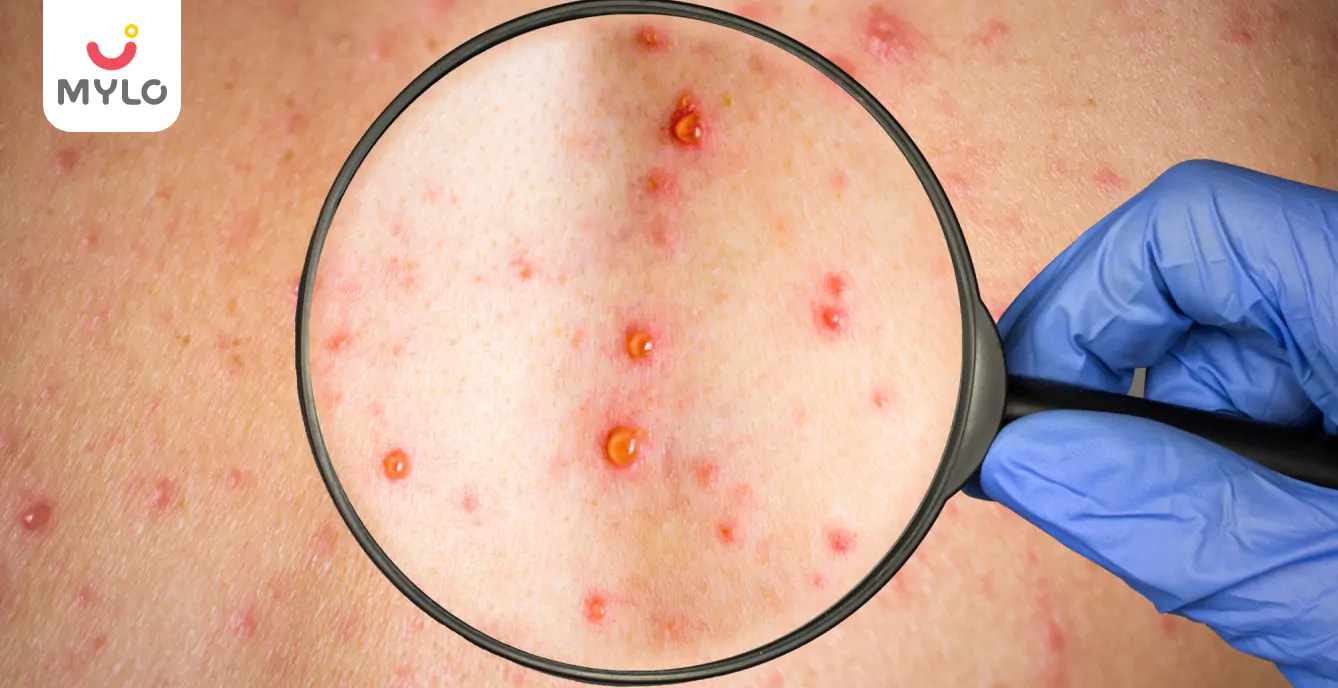Home

Illnesses & Infections

Rubella IgG in Pregnancy
In this Article

Illnesses & Infections
Rubella IgG in Pregnancy
Updated on 3 November 2023



Medically Reviewed by
Dr. Shruti Tanwar
C-section & gynae problems - MBBS| MS (OBS & Gynae)
View Profile

Among the dozens of infections known to the world is the Rubella infection. Also known popularly as German measles, this is a contagious disease that is seen commonly among children between the ages of 5 to 9 years. This infection starts with symptoms such as small red bumps or rashes, swollen glands and mild fever which tend to go away after a few days. After the introduction of the Rubella vaccine in 1960s, a decline was seen in the number of cases. However, it can still be found among children and adults in most countries.
While the Rubella virus is not serious even among children, it results in the opposite when a woman is not Rubella IgG positive in pregnancy. An expecting mother coming in contact with anyone suffering from German measles may suffer from congenital rubella syndrome in the fetus. If this occurs, a baby can suffer from serious birth defects which include brain damage, heart issues and deafness among others.
What are the Rubella Symptoms In Pregnancy?
The symptoms of the Rubella virus are usually mild initially which makes it easy to be ignored. The symptoms start to develop within 2-3 weeks after exposure to the virus and can last for about a week. A woman who is detected with Rubella IgG in pregnancy can suffer from some of these common symptoms:
- Pink or red rash on the face
- Rash slowly spreads on the body
- Mild fever
- Headache
- Cough
- Closed or runny nose
- Swollen lymph nodes
- Muscle pain
- Red eyes
There have been reports of rare cases as well wherein a woman with high rubella IgG in pregnancy has the following symptoms:
- Ear infections
- Stiff neck
- Swelling in the brain
- Prolonged headache
How is Rubella IgG in Pregnancy Transmitted?
The Rubella virus spreads when a pregnant woman is in contact with an infected person who sneezes or coughs and spreads the germs onto surfaces and air. Some people do not get the symptoms immediately, making them unaware of being infected and passing the virus around. Hence, it is always safe that people keep a safe distance when they are around pregnant women to avoid such transmissions. As for the expecting mother, it is wise to get a Rubella test in pregnancy immediately in case of any Rubella symptoms.
You may also like: Infections During Pregnancy That Can Harm Your Baby
What Does Rubella IgG Positive Means for Pregnant Women?
If an expecting mother does a Rubella IgG test in pregnancy and tests negative, it means the mother is not immune to the infection. In case of an infection, the virus can pass to the baby from the mother in the womb and the risk is the highest during the initial 3 months. Babies infected with the Rubella virus can suffer from Congenital Rubella Syndrome or CRS, wherein they are born with serious birth defects such as:
In some serious cases, a child may end up losing his life after a few days of birth or the mother may suffer a miscarriage.
Rubella Testing in Pregnancy
A woman planning to get pregnant should first get a Rubella blood test before pregnancy. Once the result shows negative, she should immediately get herself vaccinated with the MMR vaccine if not taken before. After the vaccination, she should wait for at least one month to get pregnant. In case an expecting mother tests negative for the Rubella virus, she should not get the vaccination as it can cause other side effects.
You may also like: The Complete Vaccination Schedule for Pregnant Women
Rubella Treatment During Pregnancy
While a non-pregnant woman can get herself treated without the use of any medicines if the condition is mild or by consuming pain relievers, a pregnant woman should immediately contact her doctor. A Rubella Immunoglobulin in pregnancy shot named hyperimmune globulin may be provided to her which acts as antibodies to fight the virus. Along with it, complete rest is highly recommended in order to protect the baby and the mother. The mother should have the following antibodies in her blood that help fight the virus:
1. IgM
This antibody is seen in the blood for around a week or so in adults and about a year in newborn children after getting the Rubella virus.
2. IgG
This antibody stays in the blood forever and can be found in case a person suffered from the virus or has been vaccinated and is immune to the virus.
A Rubella IgG normal range is when the test result shows a 0.7 or lower number whereas a negative test will show a 1.0 or a higher number. These results remain the same for Rubella IgG for pregnancy and normal individual tests.
Conclusion
Hence, being Rubella IgG positive in pregnancy means that the woman is immune to the virus by either being vaccinated or having suffered from the virus earlier. It is important for women to take all precautions and vaccination for Rubella on time to avoid complications for themselves and the baby during pregnancy.
References
1. Rubella (German measles) in pregnancy. (2007). Paediatr Child Health.
2. Armah NB, Sagoe KW, Nuamah M; et al. (2022). Rubella virus IgM and IgG antibodies with avidity in pregnant women and outcomes at a tertiary facility in Ghana. PLoS One.
Tags
Rubella IgG in Pregnancy in Bengali, Rubella IgG in Pregnancy in Tamil, Rubella IgG in Pregnancy in Telugu





Medically Reviewed by
Dr. Shruti Tanwar
C-section & gynae problems - MBBS| MS (OBS & Gynae)
View Profile


Written by
Madhavi Gupta
Dr. Madhavi Gupta is an accomplished Ayurvedic doctor specializing in Medical content writing with an experience of over 10 years.
Read MoreGet baby's diet chart, and growth tips

Related Articles
RECENTLY PUBLISHED ARTICLES
our most recent articles

Diet & Nutrition
গর্ভাবস্থায় আলুবোখরা: উপকারিতা ও ঝুঁকি | Prunes During Pregnancy: Benefits & Risks in Bengali

Diet & Nutrition
গর্ভাবস্থায় হিং | ঝুঁকি, সুবিধা এবং অন্যান্য চিকিৎসা | Hing During Pregnancy | Risks, Benefits & Other Treatments in Bengali

Women Specific Issues
স্তনের উপর সাদা দাগ: লক্ষণ, কারণ এবং চিকিৎসা | White Spots on Nipple: Causes, Symptoms, and Treatments in Bengali

Diet & Nutrition
গর্ভাবস্থায় পোহা: উপকারিতা, ধরণ এবং রেসিপি | Poha During Pregnancy: Benefits, Types & Recipes in Bengali

Diet & Nutrition
গর্ভাবস্থায় মাছ: উপকারিতা এবং ঝুঁকি | Fish In Pregnancy: Benefits and Risks in Bengali

Diet & Nutrition
গর্ভাবস্থায় রেড ওয়াইন: পার্শ্ব প্রতিক্রিয়া এবং নির্দেশিকা | Red Wine During Pregnancy: Side Effects & Guidelines in Bengali
- ইনার থাই চ্যাফিং: কারণ, উপসর্গ এবং চিকিৎসা | Inner Thigh Chafing: Causes, Symptoms & Treatment in Bengali
- গর্ভাবস্থায় ব্রাউন রাইস: উপকারিতা ও সতর্কতা | Brown Rice During Pregnancy: Benefits & Precautions in Bengali
- Velamentous Cord Insertion - Precautions, Results & Safety
- Unlock the Secret to Flawless Skin: 7 Must-Have Qualities in a Face Serum
- Unlock the Secret to Radiant Skin: How Vitamin C Serum Can Transform Your Complexion
- Gender No Bar: 10 Reasons Why Everyone Needs a Body Lotion
- Unlock the Secret to Radiant Skin How to Choose the Perfect Body Lotion for Your Skin Type
- Top 10 Reasons to Apply a Body Lotion After Every Bath
- Communication in Toddlers: Milestones & Activities
- How to Improve Vocabulary for Toddlers?
- A Comprehensive Guide to Understanding Placenta Accreta
- Vulvovaginitis in Toddlers Causes, Symptoms and Treatment
- A Comprehensive Guide to Understanding Cerebral Palsy in Children
- Bitter Taste in Mouth During Pregnancy: Understanding the Causes and Remedies


AWARDS AND RECOGNITION

Mylo wins Forbes D2C Disruptor award

Mylo wins The Economic Times Promising Brands 2022
AS SEEN IN

- Mylo Care: Effective and science-backed personal care and wellness solutions for a joyful you.
- Mylo Baby: Science-backed, gentle and effective personal care & hygiene range for your little one.
- Mylo Community: Trusted and empathetic community of 10mn+ parents and experts.
Product Categories
Baby Carrier | Baby Soap | Baby Wipes | Stretch Marks Cream | Baby Cream | Baby Shampoo | Baby Massage Oil | Baby Hair Oil | Stretch Marks Oil | Baby Body Wash | Baby Powder | Baby Lotion | Diaper Rash Cream | Newborn Diapers | Teether | Baby Kajal | Baby Diapers Pants | Cloth Diapers | Laundry Detergent | Lactation Granules |







